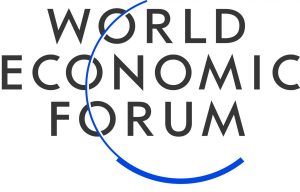
In the latest SpaceWatch Middle East interview series, Torsten Kriening speaks to Dr. Olga Stelmakh of McGill University, Canada. They discuss the work of the World Economic Forum, ‘Future of Space Technologies’ Council.
On 13-14 November 2016 the Annual Meeting for the Global Future Councils took place in Dubai, UAE. Once a year, members of this World Economic Forum Network convene to envision and discuss future global trends, identify key factors influencing them, analyse risks and opportunities. They are aimed at challenging the conventional and promoting innovative thinking on the future.
The concept of these Councils lies in a paradigm change, changing the mind-set of solving problems after they already occurred to anticipating them through collective brainstorming, projecting of possible prevention scenarios and looking for suitable solutions for the long-run. This year, the 4th Industrial Revolution has been chosen as a starting point for deliberations.
Over 700 members – recognised experts – are assigned to one of 35 Councils depending on the area of their expertise, one of which specifically focuses on the Future of Space Technologies (https://www.weforum.org/communities/the-future-of-space-technologies). This Council is tasked to explore how space technology developments could impact industry, governments and society in the future.
The two-day, face-to-face brainstorming session, is a unique way in which to kick-off and launch ideas for further elaboration over the year, until the next annual meeting. The intense, and therefore efficient, format of a result-oriented thinking is designed not only to raise the issues but to foresee possible developments. This heavily relies on the extensive experience and knowledge of Council members. The discussion is held under Chatham House rules, giving the liberty to high-level people to freely express themselves within the Council. Only the final product – the result of collective thinking – will be disclosed.
The Council’s work is governed by two Chairpersons chosen from Council members and is administered by the Council’s manager assigned by the WEF. Three of them also serve as moderators of the discussion and facilitators in reaching consensus in defining priorities for future consideration.
 One of the Councils’ key priorities is to visualise challenges specific to their focus area and relationships among them in the Transformation Maps. Transformation Maps, in conjunction with insights developed by Council members, are placed on the TopLink intranet platform and are made available to the members of all Councils. TopLink also serves as the discussion platform for dialogue and deliberations on the subject matter among the members.
One of the Councils’ key priorities is to visualise challenges specific to their focus area and relationships among them in the Transformation Maps. Transformation Maps, in conjunction with insights developed by Council members, are placed on the TopLink intranet platform and are made available to the members of all Councils. TopLink also serves as the discussion platform for dialogue and deliberations on the subject matter among the members.
In addition to the meeting in Dubai, this network of influencial thought leaders and decision-makers from international organisations, agencies, academia, think tanks, industry and start-ups communicate throughout the year virtually on the internal TopLink platform and through telephone conferences.
The findings are presented at the Annual Meeting in Davos as well as other key events that have an impact on the governance and global decision-making process, and shape the future of international affairs.
SpaceWatch Middle East questions for Dr. Olga Stelmakh:
What motivates you about space?
If I had to describe why I am motivated about space in three words, I would say “final frontier, challenge and curiosity”.
Space attracts through its excellent science and breakthrough technologies, excitement about being the first and the best, constantly competing and cooperating, going beyond the limits, looking for a new niche and setting a leadership.
In addition, for a lawyer, space is fascinating due to its complexity, broad variety of tasks to be solved and interdisciplinary nature.
What are your top 3 space visions for 2030?
- going beyond LEO, e.g. Lunar village
- harvesting energy from space
- developing technologies to meet the challenges and opportunities of tomorrow (security applications)
What are the 3 main concerns / risks for space in 2030?
- star wars
- space debris multiplication
- lack of qualified workforce
How do you see the 4th Industrial Revolution having an impact on space?
The 4th Industrial Revolution will increase the affordability and sustainability of space utilisation, but first and foremost will foster developments of new technologies, in particular robotics.
Do we need more agile regulations to act with new technologies and legal challenges – such as space weapons, cyber, space resources (code of conduct)?
Yes, regulations should go in line with technology developments, if not anticipating them. In a perfect legal world, the law should play a proactive role, envisioning possible technological developments, socio-economic and security needs. However, with regards to the legal scope for space technologies; lawyers, without coordination with engineers, market analysts, strategy experts and policy makers, risk creating a legal framework that does not reflect the actual needs and challenges. Being detached from the existing demands, the legal framework instead of facilitating the application and ensuring efficient utilisation of those technologies, will create an artificial obstacle hindering disruptive and breakthrough developments.
How can informed press help to conduct your messages? What kind of press support is needed for a peaceful use of (outer) space?
The best way to help to conduct the message is to ensure the largest outreach to our target audience both through its communication in hardcopy version of the journal/ magazine/newsletter and per Internet (e-version/online platform). Also we should not neglect the growing role of the social media.
Dr. Olga Stelmakh is a Postdoctoral Fellow in Space Governance at McGill Institute of Air and Space Law where she coordinates the International Study on Global Space Governance and conducts research on space sustainability and security. She also serves as a Global Partnerships Manager for the World Space Week Association. Prior to that she was with the George Washington University’s Space Policy Institute, Parliament of Ukraine, German Aerospace Center, Ukrainian Space Agency and European Space Agency. Olga has been in the space sector for more than 13 years, from which 7 years as a public officer (including governmental and parliamentarian experience). Institute of Space and Telecommunication Law (Paris) and International Space University (Strasbourg) alumna, she worked both nationally and internationally, combining public service with academic work and legal practice. She holds a Doctorate in International Law with concentration on space security. Her main scientific interest lies in the fields of space security, space governance, space diplomacy, international space cooperation and commercial space. In 2013 Olga was honored with the IAF Emerging Space Leaders recognition award and is a member of the International Institute of Space Law and Women in Aerospace.
SpaceWatch Middle East thanks Dr. Olga Stelmakh of McGill University, Canada, for the interview.
Original published at: http://spacewatchme.com/2016/12/dr-olga-stelmakh/
 SpaceWatch.Global An independent perspective on space
SpaceWatch.Global An independent perspective on space

